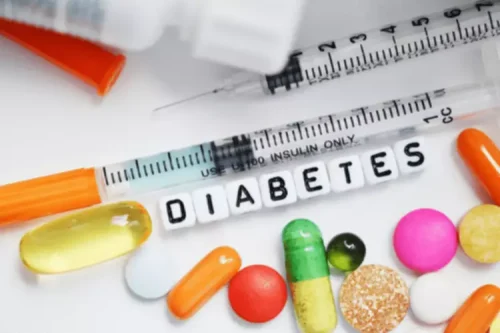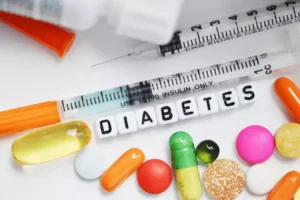
Many people with alcoholic liver disease are deficient in B vitamins, zinc and vitamin D and it may become necessary to take supplements. Although both types of hepatitis are marked by inflammation of the liver, alcoholic hepatitis is caused alcohol and life expectancy by excessive alcohol consumption, where viral hepatitis is caused by several viruses such as hepatitis A, B, C, D or E. Alcoholic fatty liver disease appears early on as fat deposits accumulate in the liver. People who consume four to five standard drinks per day over decades can develop fatty liver disease. Early damage to the liver causes fat to deposit onto the liver, resulting in hepatic steatosis, or alcoholic fatty liver disease. Fatty liver disease often has no symptoms and can usually be reversed.
WORLD INFANT MORTALITY REPORT

Wernicke syndrome affects the brain, while Korsakoff syndrome affects the nerves and spinal cord. Number of deaths (percentage of total number of deaths) for the three most frequent causes of death for women and men in Germany in 2008 9. Discover strength and resilience in cocaine recovery with coping strategies, therapy, and relapse prevention techniques.

Free Healthbeat Signup
- The health complications that come with end-stage alcoholism increase the likelihood of death.
- They’re often an important component of social events, celebrations, and milestones; we toast people, events, and memories with alcohol.
- Data from the Alcohol Toolkit suggests that the prevalence of risky drinking never rose in year olds, that it rose and then fell back in ages 25-54, but in the over 55s it rose and remained high, or even rose further.
- Alcohol use can cause sexual dysfunction, such as difficulty achieving or maintaining an erection and decreased sexual sensations.
Chronic alcohol use raises your risk for health problems, including heart disease, liver disease, cancer, and mental health disorders. Heavy drinking can lead to a wide range of health problems and diseases, so it’s no wonder that alcoholism and life expectancy are connected. Short-term effects of heavy drinking can lead to sudden death from alcohol poisoning, as well as car accidents caused by driving under the influence or accidental falls while drunk. A large percentage of people who die by suicide drank heavily right before they died, and many people who committed violent crimes were drunk at the time. But many of the people who eventually die due to alcohol-related causes die from a disease, such as cancer or liver damage or failure, that came about because of years or decades of heavy drinking.
- You may start missing work or important social events because of drinking issues or hangovers.
- The amount and frequency of alcohol consumption play a significant role in determining the impact on an individual’s health and life expectancy.
- At Resurgence Behavioral Health, we offer a medical detox program that can help people get through alcohol withdrawal safely and make them feel more comfortable as their body rids itself of toxins.
- End-stage alcoholism is deadly because it causes severe health complications.
- Alcohol consumption irritates the lining of the stomach and intestines.
- Chronic and excessive alcohol use disrupts the balance of bacteria in the gut microbiome (dysbiosis).
Short-Term Effects of Alcohol Consumption
- Withdrawal symptoms could be serious, including tremors and hallucinations.
- This means that the true picture is considerably worse than this new data suggests.
- If you have a loved one who can’t stop drinking, get that person the help he/she needs today.
- By addressing these factors and seeking appropriate treatment, individuals can improve their overall health and increase their chances of a longer and healthier life.
- Remember, recovery from alcoholism is a lifelong process, and the journey may have its ups and downs.
Symptoms include fever, jaundice (yellowing of the skin), malnourishment, swelling, and accumulation of fluid around the liver. Alcohol abuse can also cause mental health problems like paranoia, anxiety, despair and suicidal thoughts. This suggests that the environment provided by parents, shaped in part by their genetic predispositions, can mediate the risk of alcohol problems in their children. The Global Burden of Disease Study underscores the sobering reality that alcohol consumption is a major contributor to premature mortality worldwide. Individualized treatment programs delivered in a comfortable, relaxed setting promote healing in your recovery journey.

Many of these benefits are quite small, https://ecosoberhouse.com/ and it’s hard to predict who will actually benefit and who may be harmed more than helped by alcohol consumption. Withdrawal symptoms could be serious, including tremors and hallucinations. It is critically important to seek out a professional alcohol addiction treatment program to safely detox and withdraw from alcohol use. If you or a loved one struggles with alcohol addiction, help is available. The most important step to recovering from alcohol addiction is seeking treatment. The caring team members at The Recovery Village understand how difficult it is to take the first step of getting help.
Discover therapy approaches, medication options, and holistic methods for lasting recovery. From withdrawal symptoms to safe practices, get the answers you need for a successful detox journey. Discover the pivotal role of family support in addiction recovery. Discover how collaboration and volunteering strengthen bonds for mental health. It’s important to understand that these variances in life expectancy are not absolute and may vary from person to person.
MeSH terms

The first stage of alcoholism is increased drinking and difficulties resisting alcohol. Alcohol use disorder (AUD) is a progressive disease with varying stages of severity. The end stage is the most dangerous and can lead to life-threatening health conditions. Depending on the individual circumstances of the person, leaving a heavy drinking problem without proper assistance may be risky and sometimes fatal. It’s easy to what is alcoholism forget, but alcoholic beverages are often quite high in calories. Regularly imbibing, then, can sneakily contribute to weight gain and obesity.
The Link Between Alcohol Detox and Mental Health Recovery

In one study, which examined people with and without alcohol use disorder from 1987 to 2006, it was discovered that life expectancy was 24 to 28 years shorter in alcoholics. The study also found that people with alcohol use disorder had higher mortality rates from all causes of death, all medical conditions and diseases, and suicide. Alcohol consumption has complex and far-reaching effects on health and life expectancy. Whether considering the immediate risks, long-term health consequences, or the influence of lifestyle and genetics, it’s clear that alcohol’s impact is significant.
Common Myths and Misconceptions About Detox
- In the United States, over 84% of adults report drinking alcohol at least once in their lifetime.
- Over time, this imbalance triggers chronic gastrointestinal inflammation, leading to a higher risk of gastrointestinal diseases.
- On the other hand, less developed regions like Africa and Eastern Mediterranean tend to consume less alcohol due to economic/cultural/religious reasons, and their life expectancy is not affected by the magnitude of drink intake.
- Many people with ALD are malnourished (lacking proper nutrition) due to a variety of factors, such as lack of eating, vomiting, and malabsorption (difficulty absorbing nutrients from food).
- The consumption of alcohol has a wide spectrum of effects on health, with both immediate and lasting implications.
- This is particularly concerning as the perception of alcohol’s harm tends to decrease with age despite the heightened risks.
- People with substance use disorder, researchers said, have greater mortality from all causes of death.
These conditions progressively damage the liver, impairing its ability to function properly. Alcoholism can have severe detrimental effects on various systems within the body, ultimately impacting life expectancy. Let’s delve into the specific ways in which alcoholism affects the body, focusing on liver damage, cardiovascular issues, and weakening of the immune system. For instance, a study cited by the National Center for Biotechnology Information (NCBI) reported that life expectancy was years shorter for individuals with alcohol use disorder compared to the general population.
myths about using Suboxone to treat opioid addiction
While the early stages may have no symptoms, later stages can cause symptoms such as fatigue, swelling in the hands and legs, jaundice, loss of appetite, and weakness. Corticosteroids are used to treat severe alcoholic hepatitis by decreasing inflammation in the liver. Other medications, such as Pentoxil (pentoxifylline), may also be used. Alcoholic hepatitis occurs when the liver becomes damaged and inflamed.